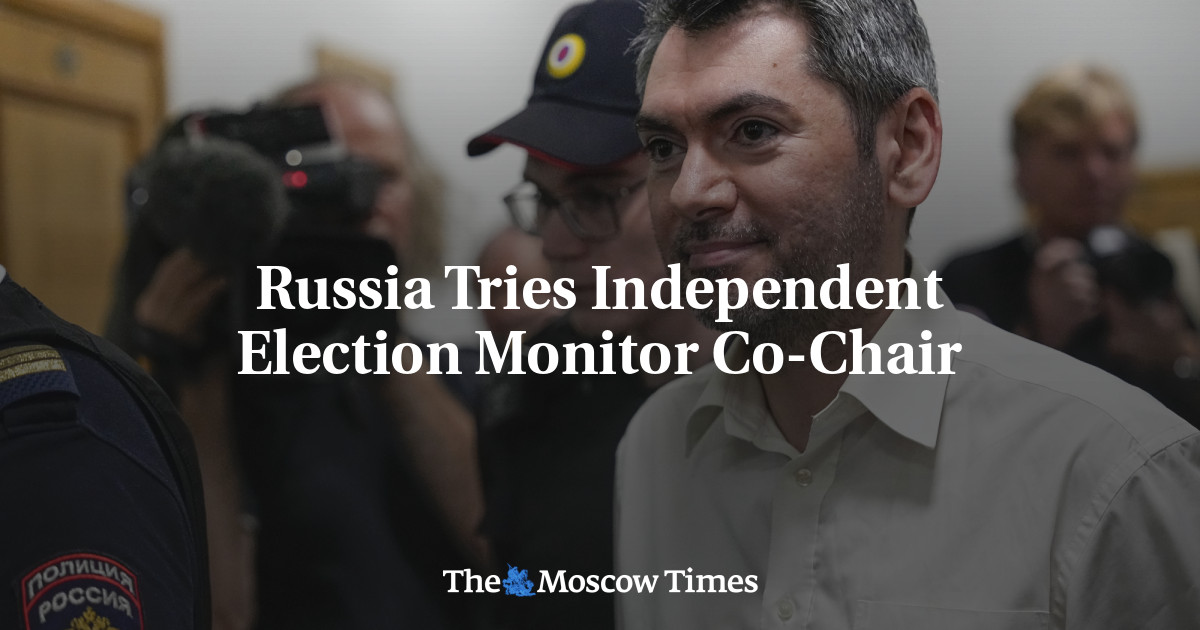
The co-chair of an independent Russian election monitoring watchdog, Grigory Melkonyants, went on trial Friday accused of cooperation with an “undesirable” organization.
The trial of the co-leader of Golos, one of Russia’s most prominent rights movements, comes as Moscow has intensified its crackdown on critical voices since launching its offensive in Ukraine.
Melkonyants, who denies the charges, has spent over a year in custody and risks up to six years in prison if found guilty.
Golos, which means vote or voice, monitors electoral campaigns and regularly denounces vote rigging.
The prosecution’s case is based on alleged ties between Golos and a European monitor organization that Russia has banned as “undesirable,” claiming it presents a threat to national security.
Melkonyants, 43, was detained in August 2023. Investigators also raided the homes of other activists linked to Golos.
The co-chair pleaded not guilty at Friday’s hearing at Moscow’s Basmanny District Court, the RIA Novosti news agency reported.
“I don’t understand the accusation against me. I don’t admit guilt. I am convinced that the case should be closed due to the lack of a crime,” he was quoted as saying.
Diplomats from countries including France, Germany and New Zealand attended the hearing, wrote Mediazona website, which monitors courts.
The prosecution accused Melkonyants of “acting in the interests of unfriendly foreign states.”
It claimed that Golos “is practically a structural division” of the European Network of Election Monitoring Organizations (ENEMO), which was declared “undesirable” in Russia in 2021, RIA Novosti reported.
ENEMO, which is based in Montenegro and has U.S. funding, in a statement last year after Melkonyants’s arrest said it “categorically denies such claims.”
It stated it “does not work with the Golos movement” and Golos has not been a member of its network for a “significant amount of time.”
ENEMO’s website now does not list any members in Russia.
Golos itself has not been banned in Russia. It was listed as a “foreign agent” by Russia’s Justice Ministry in 2021.